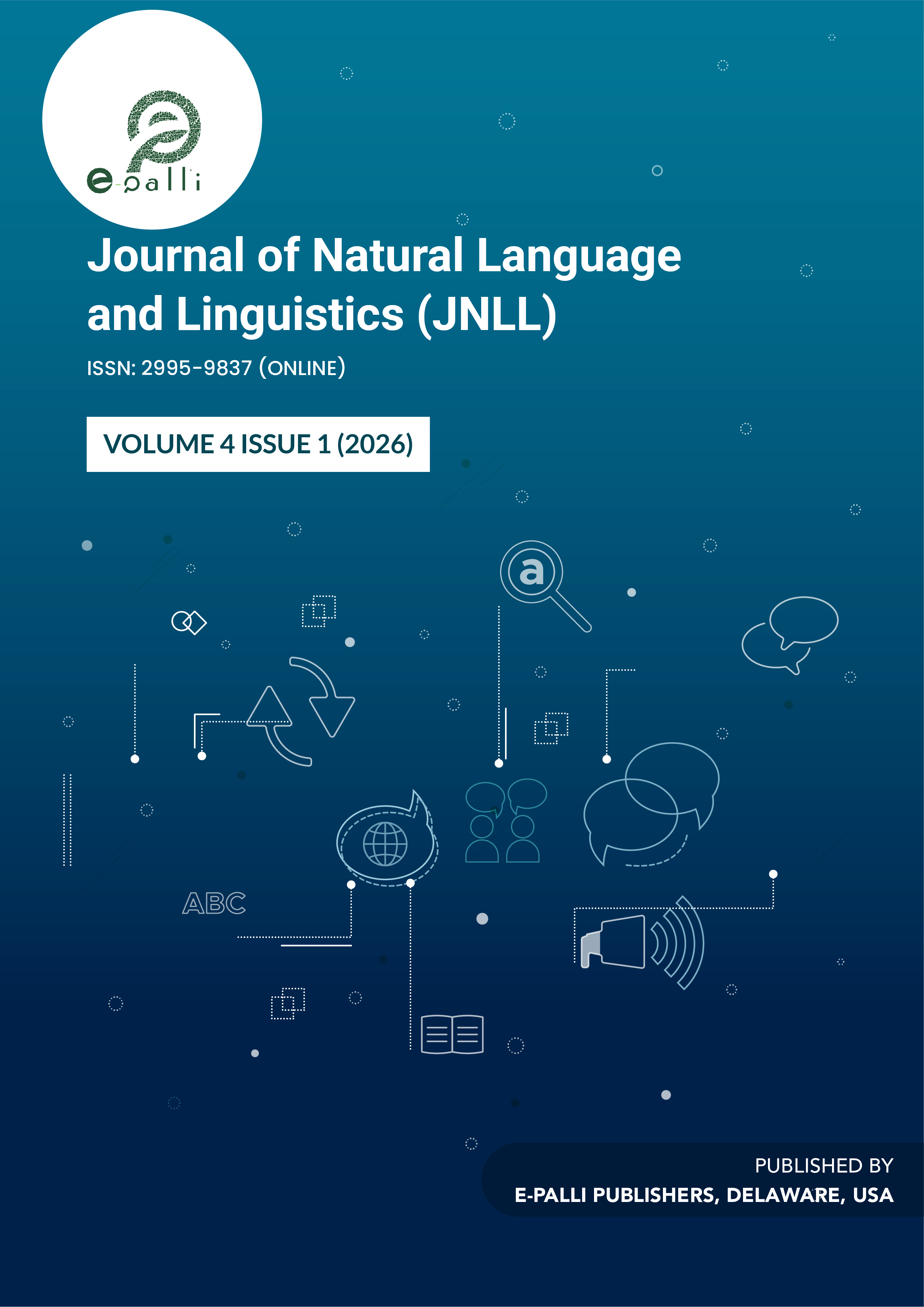
About the Journal
The Journal of Natural Language and Linguistics (JNLL) is an open-access and double-blind peer-reviewed international journal publishing articles that emphasize research, development, and application within or between the fields of Natural Language and linguistics. JNLL reviews papers within the shortest possible time of submission and publishes accepted articles online immediately upon receiving the final versions.
ISSN: 2995-9837 (Online)
Aim & Scope
JNLL aims to provide a platform for scientists, development workers, practitioners, and academicians to promote, be more visible internationally, and provide the opportunity to discuss critically and analyze different issues in science and technology. The journal also aims to be the most important journal in scientific societies by getting indexes in Scopus, WoS, and high impact factor in the coming years.
Frequencies of publication
One issue in a year while it accepts articles throughout the years and publishes online first immediately after acceptance of the final version.
Area of publication
◉ Natural Language
◉ Linguistics
◉ Computational linguistics
◉ Developmental linguistics
◉ Evolutionary linguistics
◉ Applied linguistics
◉ Biolinguistics
◉ Clinical linguistics
◉ Stylistics
◉ Theory of Linguistics
◉ Psycholinguistics
◉ Linguistic typology
◉ Language geography
◉ Historical linguistics, etc.



